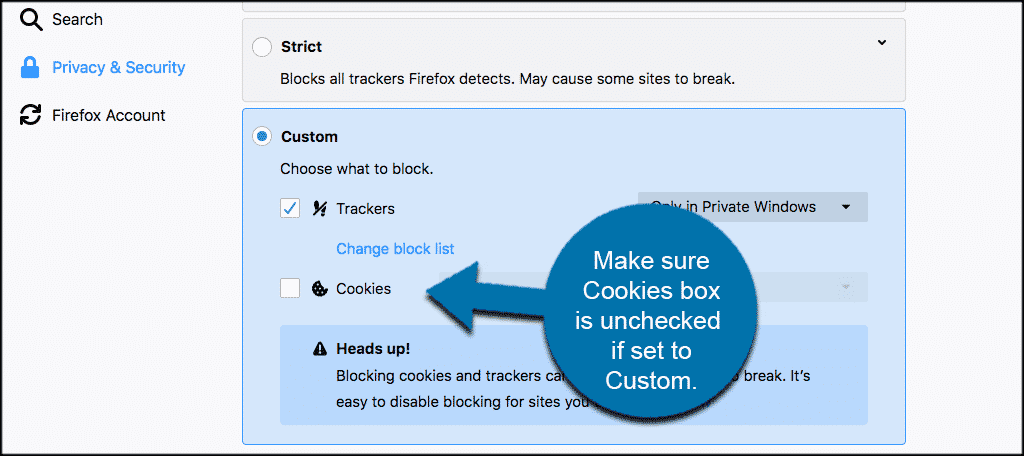

But more and more users are becoming sensitive to the subject of data protection and the internet, and so switch this function off or only allow cookies on request to maintain control over data collection. In most browsers, cookies are enabled by default. But the EU Directive doesn’t set whether or not user consent has to be obtained first (opt-in procedure). Otherwise, website operators have to expressly inform their visitors if cookies are used on their site.

According to the EU Cookie Directive however, text files may only be used without asking if it’s technically necessary. To protect their privacy, users can object to the use of cookies (opt-out procedure). But the collection of user data also represents a type of logbook about the user and their virtual activities. Websites, third parties, and advertisers can store cookies and other data on your Mac. In case you use 'Clear history when Firefox closes' or otherwise clear history. Always allow cookies: Deselect Block all cookies. Exceptions are part of the Site Preferences, so you need to keep the Site Preferences and use 'Delete cookies and site data when Firefox is closed' to let other cookies expire. This may prevent some websites from working properly. Websites, third parties, and advertisers can’t store cookies and other data on your Mac. Personalisation also simplifies the use of online offers such as stores or forums. Always block cookies: Select Block all cookies. This improves the user experience and enables seamless interaction between user and website.

As a result, cookies should be used as a service: The website should remember a user and their preferred settings.


 0 kommentar(er)
0 kommentar(er)
